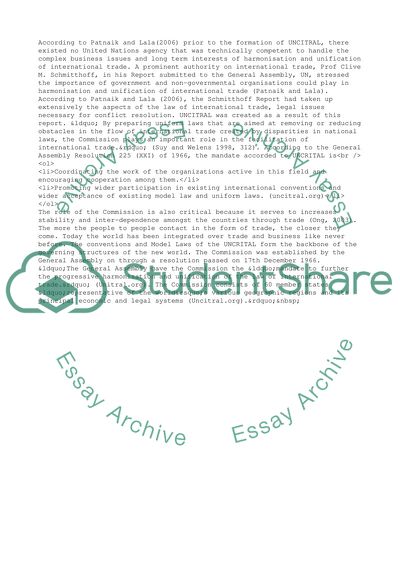Cite this document
(The United Nations Commission on International Trade Laws Assignment, n.d.)
The United Nations Commission on International Trade Laws Assignment. https://studentshare.org/business/1713685-international-business-and-law-research-assignment
The United Nations Commission on International Trade Laws Assignment. https://studentshare.org/business/1713685-international-business-and-law-research-assignment
(The United Nations Commission on International Trade Laws Assignment)
The United Nations Commission on International Trade Laws Assignment. https://studentshare.org/business/1713685-international-business-and-law-research-assignment.
The United Nations Commission on International Trade Laws Assignment. https://studentshare.org/business/1713685-international-business-and-law-research-assignment.
“The United Nations Commission on International Trade Laws Assignment”. https://studentshare.org/business/1713685-international-business-and-law-research-assignment.


